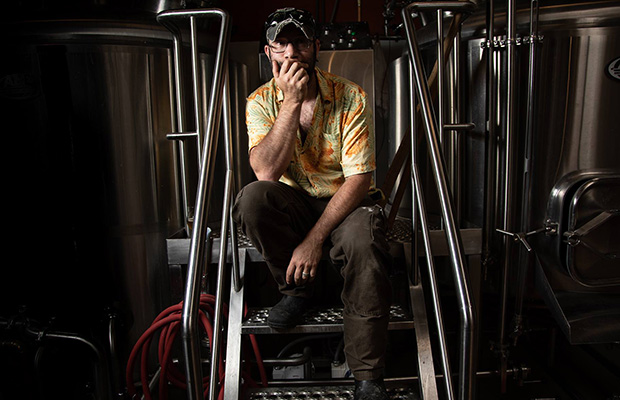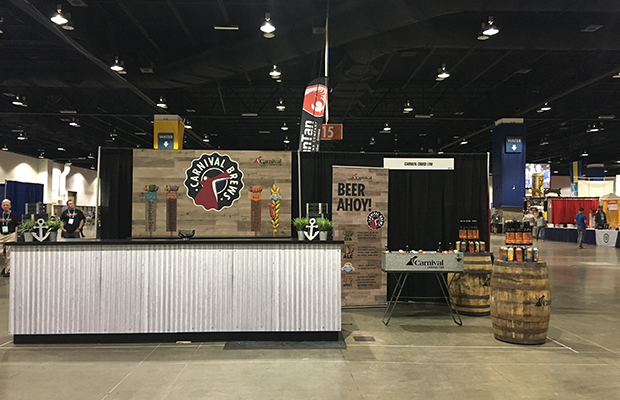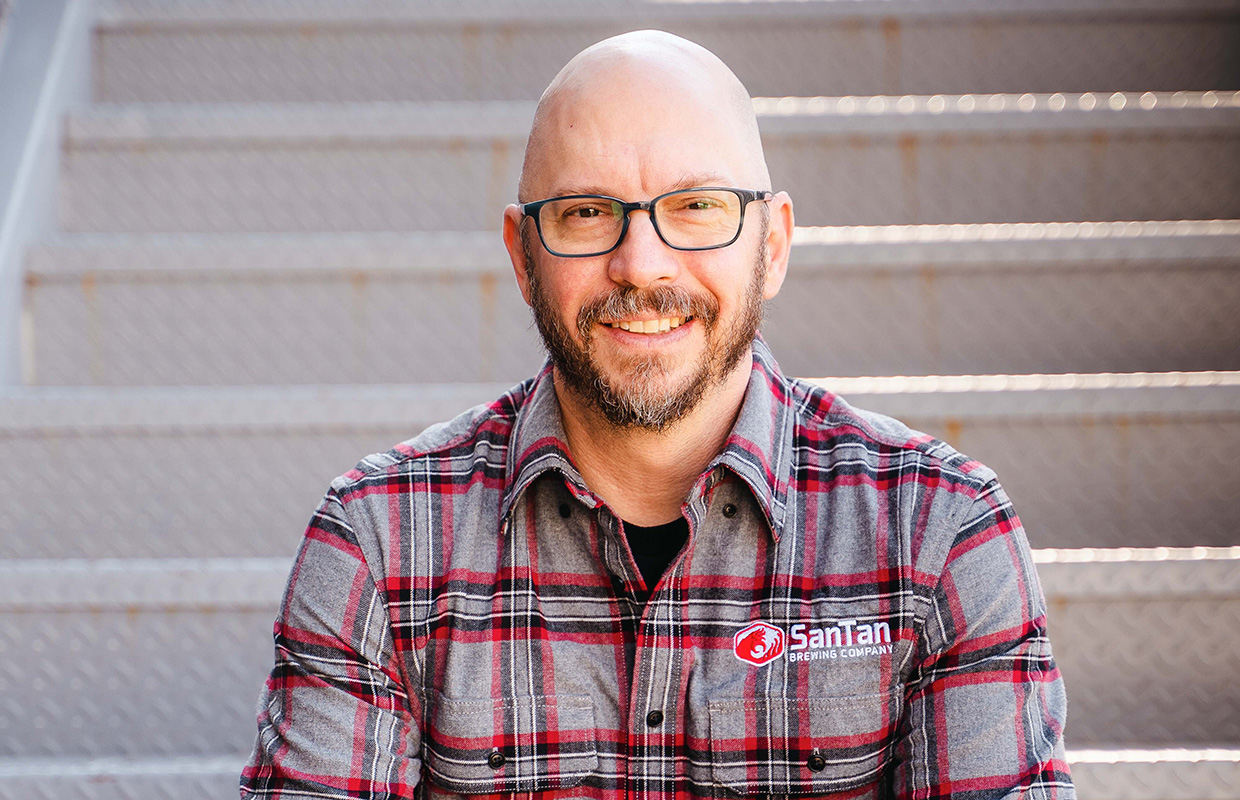
Brewer Magazine will share business and personal insights from Brewmasters, Head Brewers, Brewing Managers, Sales Directors, QCQA Managers and others each weekend to help you get to know each other better in the industry and learn more to better develop your own brand.
Jordan Fink, Director of Brewery Operations/co-owner, Woods Boss Brewing — Denver
BREWER: How do you feel your job has had to adapt in the beer market compared to a two years ago?
FINK: From a brewing perspective, I don’t think it has changed much given our model. As a community-focused brewery we don’t have to fight as hard to stay relevant in a changing market. Our main customer base is hyper-local, within 5-10 miles of the brewery for the most part. We also have a decent tourist crowd staying in Downtown Denver or here on “beercations.” My job is to maintain the balance in our portfolio to support what we offer, support our limited off-site distribution, keep it fresh, and keep cranking out beers and styles that appeal to folks on the front end of trends … without forgetting the classics. Good thing I have 20 taps to work with.
FINK: Wow! So many and so much! The most influential for me is Steve Indrehaus of Tommyknocker who first hired me with zero professional experience. He gave me my shot. Steve is an encyclopedia of beer and industry knowledge and the opportunities to just pick his brain helped me not only with the physical, scientific, and creative sides of brewing — but also with the vision and needed to design a brewery and business model that could be successful.
FINK: About five years ago I was hired to be the start-up/Head Brewer for Sherpa Brewery, the first craft brewery in Nepal. As all of my previous experience had been in an older, well established brewery I learned a ton of things about brewing systems including design and set up (both what to do and what not to do) and at times had to teach myself brewer engineering. While I took many things away from this experience, the thing that I am most proud of is finding ways to become more sustainable in our practice that we employ at Woods Boss today. We engage in significant conservation efforts like minimizing water and chemical waste, as well as designing efficiencies in to our systems on the front side. We are extremely proud of the fact that we are below the industry standard of 4-8 gallons of water to produce one gallon of beer (though the average is closer to 6:1).
FINK: Pretty much everything about Woods Boss is aligned with the outdoors, from our name (it comes from my days doing trail work with teenagers while working for a Youth Conservation Corps) and brand, to our personal interests as owners and staff, our decor (lots of wood!), the non-profits we partner, support, and collaborate with, events we attend and promote, and even our swag. This is definitely who we are and we hear time and again that our customers love that about us. They say they love feeling like they are in a giant cabin in the mountains when they are in our tasting room, and that it is at least a small part of why they come back to see us. I’d like to think there are lots of reasons for this though.
FINK: Two things really. First is finding a better POS that is pretty robust (Arryvd) which allows us to access a TON of information allowing data to be turned into action. By this, I mean helping with scheduling as we can clearly see sales by hour, day, week, etc. so as to have the right number of people in order to provide the level of customer service that we expect. It helps me on the brewing side as I can see total ounces sold in volume and by style thereby allowing me to do a better job with my brew calendar. The other thing is how we have creatively restructured employee responsibilities. When our General Manager left to start her own brewery, rather than just hire a new GM, we split her responsibilities among a few of the staff, distributing some of the empty position’s salary, handing them more responsibility, allowing them to grow and gain new skills which are valuable to them and us as a business … which in turn helps them feel more personally invested in the company and demonstrating our commitment to them as well.
BREWER: If you had one business strategy that you could implement to better the brewing industry, what would it be?
FINK: I’m not sure there is one strategy that would better the entire industry as models, customer bases, and so many other elements differ from brewery to brewery. I do feel that one thing that all brewers should do is to find a way to keep focusing on their local communities. I could go on about that but really it comes down to being place based, supporting local, celebrating local, brewing for the people you see, impact, and are impacted by daily.





Be the first to comment